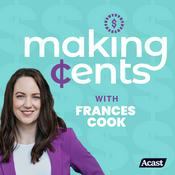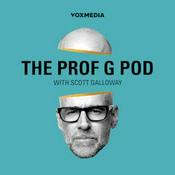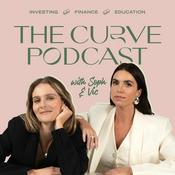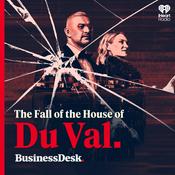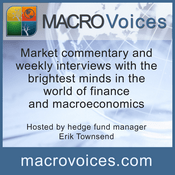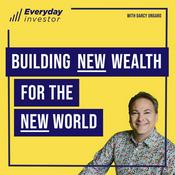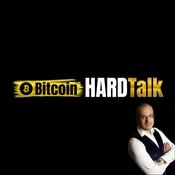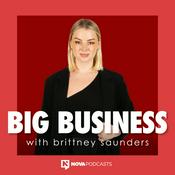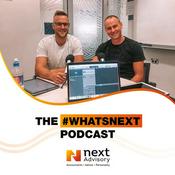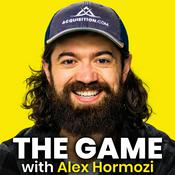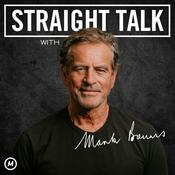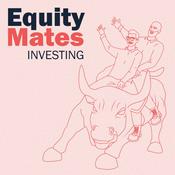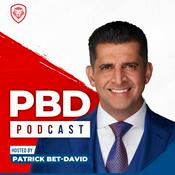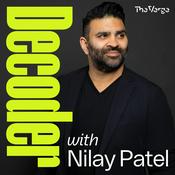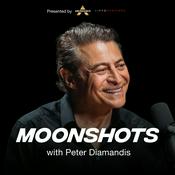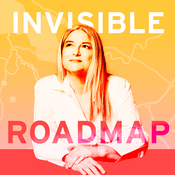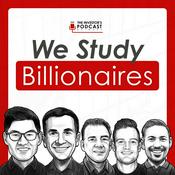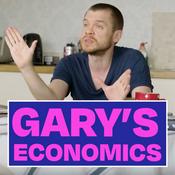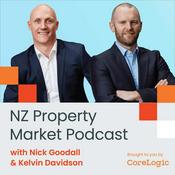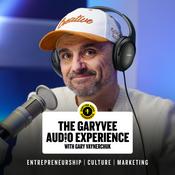38 episodes

Pipenet, Cotana: internet delle merci, la rivoluzione dei trasporti è italiana
02/10/2025 | 6 mins.
È italiana l’internet delle merci, una rivoluzione dei trasporti pronta per essere realizzata. Si chiama Pipenet, è una rete di tubi sottovuoto nei quali viaggeranno capsule a levitazione magnetica a 1500 chilometri all’ora su tutto il territorio nazionale, e in prospettiva europeo.

Posidonia spiaggiata, Pollica la utilizza per produrre energia
15/9/2025 | 5 mins.
Posidonia spiaggiata: il primo impianto italiano che la utilizzerà per generare biogas e quindi energia si realizzerà a Pollica, nel Cilento, in provincia di Salerno. Ne abbiamo parlato con Stefano Pisani, sindaco di Pollica, che da anni si batte per realizzare il progetto, e sta vedendo il traguardo.

Books Driving Change: Sharath Jeevan and Intrinsic
23/3/2022 | 33 mins.
Matthew Bishop (MB): Hello, this is Matthew Bishop with Books Driving Change. And today I'm talking with Sharath Jeevan, who is the author of Intrinsic: A Manifesto to Reignite Our Inner Drive. Sharath is a social entrepreneur who came out of the business world, consulting world, and helped launch STIR Education -- which is an organization that helps teachers improve their performance through their better motivation and sharing of insights -- he can elaborate on that -- in many countries, including India and Indonesia, and some parts of Africa. And now he runs Intrinsic Labs, which we'll talk a bit about as well, I hope. The audience for this show, Sharath, is people who are conscious of this crisis that we've been living through in the pandemic, [and how that] has revealed a need for greater public service to re-engage people with talent and insight and leadership capacity into the public realm of public service. And I wondered if you could say in a sentence for them -- why they should read your book?Sharath Jeevan (SJ): Thanks Matthew, real pleasure to be on the show. And I think it's so important for those of us leading change in public service to know what deeply motivates ourselves as individuals and leaders. And that idea of really trying to find lasting motivation from within for ourselves, really with a view that that can help us motivate the people around us -- our teams, if we've got teams in our work, but also, of course, as citizens. Our work is ultimately geared towards that, and that applies, whether we're public servants, or we're political leaders, or trying to affect change, in the social sector, or nonprofit sector, etc. And these are universal themes the book talks about.MB: In the book, you set out in a powerful way a number of the trends that have caused many people to lose touch with what it is that motivates them from within and to be driven by external factors - as to what you call “extrinsic”. To the extent that you really feel there's a huge crisis in the world of loss of connection with ourselves, and that that's underlying many of the issues that emerge all over the place, in different aspects of life, and is proving dysfunctional in many parts of the world. But could you just spell that out for us? What is the key problem that you think we need to solve at this point and that Intrinsic is setting out to solve as a book?SJ: Yes, I think it's moving our dial, that motivational dial, [away] from extrinsic or external factors. So for example, in the world of work, we would think a lot about pay, about status, how fancy our job title is, how fancy our office is. These are critical things and we're not saying they're not important -- many people in the world don't have them, we need to make sure they do. But for those of us who do have those, they have a diminishing effect over time. That was a ceiling effect. I was talking to a trader in the City of London who got a £21.5 million bonus for the year. And his first reaction when his boss told him the news was, I had to work harder, because I know that someone else down the corridor got more than me. So that idea that there's never enough in some of these things, but we can keep chasing them, [although] that won't give us fulfillment, happiness, and actually won't give us success in the long term either. What we've got to do is move that motivational belt inwards to thinking about how we can really do what we do -- particularly in public service, because it's genuinely fulfilling, motivating, and rewarding. It's a bit like driving an electric car compared to a car driving on heavy diesel -- it should feel enjoyable in its own right. And we know the key pillars of intrinsic motivation are around “purpose” -- that sense of how work helps and serves others -- and “autonomy” -- that sense of us being in control of our destiny, as public policy leaders. And finally, becoming a “master” -- or becoming a better and better leader over time. We never get to perfection, but we're getting and developing and growing. So purpose, autonomy and mastery are key to us really moving that dial inwards. And we know that it's much more likely to lead us to be happy, fulfilled, and successful.MB: One of the things you do very well in the book is marshall a lot of academic research that's supportive of your claim on intrinsic motivation. And I think maybe "purpose" in particular has become one of those buzzwords that I think everyone is talking about -- a lot of company leaders, a lot of political people, saying we need to have purpose, clear and everything. Just what is the evidence that purpose matters and can be a game changer? And, with a slightly cynical hat on, how do we tell real purpose, real change making purpose, from the sort of bullshit PR purpose that a lot of people might be inclined to say [they have], if they're under pressure, in these leadership roles at the moment to try and sign sound appealing to millennials?SJ: I think that you put the nail right on the head. A lot of problems we are having with this purpose discussion is that it has been taken to this PR territory, and thousands of staff are subject to these kinds of corporate workshops, or government workshops, where they're bombarded with purpose statements from the company and so on. What I tried to look at on "purpose" was look at that really simple definition. I was trying to define it from first principles around just how what we do helps and serves others -- take away all the airy fairy language and so on. The challenge, I think, is that actually organizations are getting better and better, to be absolutely fair, on defining organizational purpose -- why that company, or how it helps and serves others. I don't think we've yet cracked the question of how do we, as an individual leader in public service, contribute to that purpose. So what tends to happen is we get hired into a job, let's say a government somewhere, civil service, and I'll be honest, [you] seem like a robot who's there to fulfill the purpose of the government department or division. The challenge though I think is, in today's world, especially with younger workers, we ourselves want to feel a sense of a personal mission statement. And by that, what is our own North Star?Let me just give you mine as an example: I help organizations and leaders to reignite inner drive by writing, coaching, consulting. So I help organizations and leaders to reignite inner drive by writing, coaching, consulting -- just a very, very simple 15-word statement. But it's a really helpful North Star that helps me remember why I'm doing what I do. And if I joined an organization -- I work for myself now, but I do write, consult for one, as you mentioned -- the question I'm asking is how am I contributing to that organization's purpose statement? But also, how are they contributing to mine? How are they helping me achieve mine? And when I think both things are in harmony, we've got a great marriage between an employee and an organization. I think we have a great motivational deal in place. But the temptation is we tend to forget the individual and forget that we all need that for ourselves as much as needed for our organizations.MB: And then you also talk about "autonomy" and "masteries". What's the key issue today with autonomy, and what do you mean by that?SJ: If you look at political life today, I'd argue we're in a really difficult autonomy situation, one where we've got two extremes. I talked about some of the research in the book about political leadership where you can have the extreme. For example in the U.S., perhaps both houses where it's almost like individual lawmakers -- it's Clint Eastwood extreme, or if you like, a Lone Ranger type behavior. But the other extreme where when you're an MPs, often in the U.K., they are often micromanaged. And how do you have the right balance between these two things is important. In enough autonomy you're representing a genuine community of constituencies for your elected office. But also, you also need to make sure that you are adhering to the broad direction of the party that you were being elected to join. How do you find that balancing act? That's a key piece. So it can't be either extreme. It can't be micromanagement, nor can it be a complete free for all. How do you negotiate between is a key idea in the book.MB: But one of the things you generally observe is the people not feeling very much autonomy at work in that sense.SJ: Absolutely. So I was talking, for example, about teachers in the book, and we have record numbers of teachers leaving every month. In the U.S., 30,000, 40,000, 50,000 teachers a month leave the profession. In the U.K. 40% of teachers want to leave. It's not because they don't enjoy teaching anymore. It's because they feel like they are being micromanaged. And their head teachers, their leaders in the school system are asking, What would Ofsted say, rather than what's the right thing to do for my school, my community. So they feel often like a pawn on a very big chessboard and unable to exert their own professional judgment and discretion. That's a really killer, killer blow for motivation.MB: And that's a problem across government do you find in particular?SJ: I think very much. So I spent quite a lot of time talking to lawmakers in a lot of different countries, in the emerging world and the developed world. And that sense of not being able to control their own destiny -- for example, many of them wanted to be in the “for one nation tradition” where they really weren't genuinely supporting the whole country. They feel more and more like they're being held to factions as well. MB: And "mastery" is the third concept. So you have purpose, autonomy, and mastery. Specialization has been a huge theme -- to the extent that we now have lots of books about how dangerous silos are. Because we've all become so specialized, we don't really know how to reach out across silos and think in a joined up way in decision making. But what do you mean by mastery? You mean something very different to that.SJ: I talk in the book about the “10,000 hour rule”, and this idea that a lot of the mastery discussions have been about technical prowess. And there's a lot of evidence that's true in technical domains, but a lot of the future of modern jobs today, they thrive because of the human skills. As a civil servant, for example, you've got to know how to develop policy and legislation. But you've also got to know how to influence ministers, how to work with colleagues, how to work with different kinds of disciplines. I look at the COVID response, for example, those human skills are much harder to subject to simple 10,000 hour rules. It's much more of the broader human aspects of our work. And so how do we codify those -- what I call the "order essentials of mastery" -- and try to make them something [people] actually actively want to work on, and become better and better at? They're often things that are actually not on a public servant's job description, that actually are the magic of the job these days. And how do you make them explicit? How do you codify them? And how do you find a systematic way of improving them, and also find people who can nurture your skills as you progress in your careers?MB: So give us an example of where you've seen a different approach be applied, [one] that's really moved away from that sort of 10,000 hour rule approach, to something more holistic.SJ: Giving examples from my own life with STIR Education. I had a finance director who was fantastic. And she was really, really good at making sure we had good reliable management accounts every month. The challenge is that as we became bigger as an organization, that actually a lot of her role was shifting from that technical aspect she was very comfortable into influencing our staff, or running our program for teachers -- for them to spend money better, to know how to use resources better, to make sure they felt more comfortable in terms of financial literacy, and be able to use the numbers themselves to make intelligent decisions. So we did a lot to try and break barriers down. Simple things, like she where she sat in the office. Often, finance tends to have their own little cubicle or room because they feel that what they've got is confidential information. So I said, Why don't you rotate around the office every day, every week, so you meet different colleagues, you can talk to them, see their reality. She spent many days in the field, with schools, seeing the work on the ground, and seeing a lot of the processes that we had time might be actually hindering progress. So it's trying to break down silos. And back to that personal mission statement, if you think my role at purpose level is to produce management accounts on time and accurately, that's one purpose statement. If it's to help the organization as a whole make better decisions, that's a different one. So how do you try and break some of the traditional ways of thinking down to open up jobs in public service and make them fulfilling and motivated?MB: And you talked about STIR Education, and the book opens with this inspiring story and how you were surprised, in a sense, by the appeal of the message. Can you just talk a bit about what happened and why that's given you hope? And have you seen other examples since?SJ: So, I got into this whole thing by accident. I'm an economist by background at the end. I was very much someone to believe in the hard skills of life around finance, or economics, and so on. I think what happened is, starting off in the slums of Delhi, we were trying to find some great teaching ideas to be shared around the world. That by looking for the ideas in some of the poorest parts of the world, there was not huge pride. In a sense, my teachers, for the first time, their ideas mattered. And they were actually important people in their own right, and they enjoyed meeting each other and sharing ideas. That buzz of energy would, almost by accident, even though we didn’t know what these terms meant at the time, but we're unlocking purpose, autonomy and mastery, almost as a byproduct of what we were doing. We realized we had confused the baby in the bathwater. And actually, magic was that ignition of teachers, that reigniting of motivation, and that r

Books Driving Change: Jonathan Greenblatt and It Could Happen Here
09/3/2022 | 40 mins.
Today on Books Driving Change we talk with Jonathan Greenblatt, the CEO of the Anti-Defamation League, who has written a powerful new book called It Could Happen Here: Why America Is Tipping from Hate to the Unthinkable—And How We Can Stop It.

Books Driving Change: Agustín Porres and Unfinished Business in Education
14/2/2022 | 33 mins.
The people that work in education and that take the responsibility of leading the education system are mainly optimists. If not, you cannot take the job.In the latest episode of Books Driving Change, Agustín Porres and Matthew Bishop talk about Porres’ new book, Unfinished Business in Education, in which he interviews 31 previous education secretaries from around the globe. Each of them reflects on their time in office -- what they learned, what they achieved, what they failed to do, and what they would advise people going into that role today. They also talk about why the pandemic may be providing the perfect opportunity to enact sweeping education reforms, because of the crisis it has brought on, the innovation it triggered, and the fact that education is now much more visible in many national debates that it has been for many years. Porres has spent the last couple of decades working on education policy and is currently Latam Regional Director of the Varkey Foundation, which works to build the capacity and status of teachers. It is also the sponsor of the Global Teacher Prize. Before joining Varkey, Porres worked in various government roles.
More Business podcasts
Trending Business podcasts
About Driving Change
Listen to Driving Change, Making Cents and many other podcasts from around the world with the radio.net app
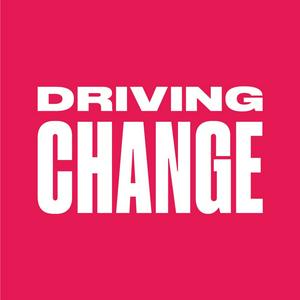
Get the free radio.net app
- Stations and podcasts to bookmark
- Stream via Wi-Fi or Bluetooth
- Supports Carplay & Android Auto
- Many other app features
Get the free radio.net app
- Stations and podcasts to bookmark
- Stream via Wi-Fi or Bluetooth
- Supports Carplay & Android Auto
- Many other app features


Driving Change
download the app,
start listening.
